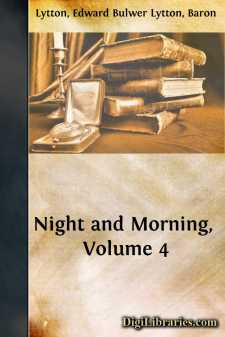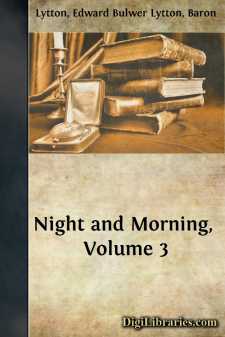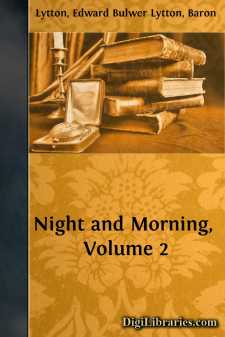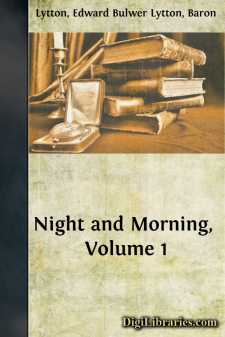Fiction
- Action & Adventure 180
- Biographical 15
- Christian 59
- Classics
- Coming of Age 5
- Contemporary Women 3
- Erotica 8
- Espionage/Intrigue 12
- Fairy Tales, Folklore & Mythology 236
- Family Life 169
- Fantasy 117
- Gay 1
- General 596
- Ghost 32
- Historical 808
- Horror 43
- Humorous 160
- Jewish 25
- Legal 4
- Medical 22
- Mystery & Detective 315
- Political 49
- Psychological 41
- Religious 64
- Romance 159
- Sagas 11
- Science Fiction 730
- Sea Stories 113
- Short Stories (single author) 537
- Sports 10
- Suspense 1
- Technological 8
- Thrillers 2
- Urban Life 31
- Visionary & Metaphysical 1
- War & Military 173
- Westerns 199
Classics Books
Sort by:
BACK TO BACK Mrs. Scutts, concealed behind the curtain, gazed at the cab in uneasy amazement. The cabman clambered down from the box and, opening the door, stood by with his hands extended ready for any help that might be needed. A stranger was the first to alight, and, with his back towards Mrs. Scutts, seemed to be struggling with something in the cab. He placed a dangling hand about his neck and,...
more...
CHAPTER I. "Per ambages et ministeria deorum."—PETRONTUS. [Through the mysteries and ministerings of the gods.] Mr. Roger Morton was behind his counter one drizzling, melancholy day. Mr. Roger Morton, alderman, and twice mayor of his native town, was a thriving man. He had grown portly and corpulent. The nightly potations of brandy and water, continued year after year with mechanical...
more...
CHAPTER I. "O that sweet gleam of sunshine on the lake!" WILSON'S City of the Plague If, reader, you have ever looked through a solar microscope at the monsters in a drop of water, perhaps you have wondered to yourself how things so terrible have been hitherto unknown to you—you have felt a loathing at the limpid element you hitherto deemed so...
more...
CHAPTER I. "The knight of arts and industry, And his achievements fair." THOMSON'S Castle of Indolence: Explanatory Verse to Canto II. In a popular and respectable, but not very fashionable quartier in Paris, and in the tolerably broad and effective locale of the Rue ——, there might be seen, at the time I now treat of,...
more...
CHAPTER I. "Incubo. Look to the cavalier. What ails he? . . . . . Hostess. And in such good clothes, too!" BEAUMONT AND FLETCHER: Love's Pilgrimage. "Theod. I have a brother—there my last hope!. Thus...
more...
Much has been written by critics, especially by those in Germany (the native land of criticism), upon the important question, whether to please or to instruct should be the end of Fiction—whether a moral purpose is or is not in harmony with the undidactic spirit perceptible in the higher works of the imagination. And the general result of the discussion has been in favour of those who have contended...
more...
Much has been written by critics, especially by those in Germany (the native land of criticism), upon the important question, whether to please or to instruct should be the end of Fiction—whether a moral purpose is or is not in harmony with the undidactic spirit perceptible in the higher works of the imagination. And the general result of the discussion has been in favour of those who have contended...
more...
CHAPTER I. HOW THE CHILDREN PLAYED. When news of the War first came to Polpier, Nicholas Nanjivell (commonly known as Nicky-Nan) paid small attention to it, being preoccupied with his own affairs. Indeed, for some days the children knew more about it than he, being tragically concerned in it—poor mites!—though they took it gaily enough. For Polpier lives by the fishery, and of the fishermen a large...
more...
CHARACTERS EUDEMIUS, a Roman lord living in BritainVARIA, his daughterLIVINIUS, a Roman citizen, a boyhood friend of EudemiusMARIUS, his son, of the Roman legions in Gaul [Guests of Eudemius]MARCUS SILENUS POMPONIUS, Count of the Saxon ShoreAURELIUS MENOTUS, duumvir of AnderidaFELIX, his sonCAIUS JULIUS VALENS, a Roman citizen [Roman girls, daughters of the guests of Eudemius]JULIANIGIDIAPAULAGRATIA...
more...
by:
Peter A. Porter
The printed story of Niagara dates back only three centuries; and during the first three decades of even that period the references to this wonderful handiwork of Nature—which was located in a then unexplored region of a New World, a Continent then inhabited only by warring tribes of superstitious Savages—are few and far between. Three facts relating to this locality—and three only—seem to be...
more...











